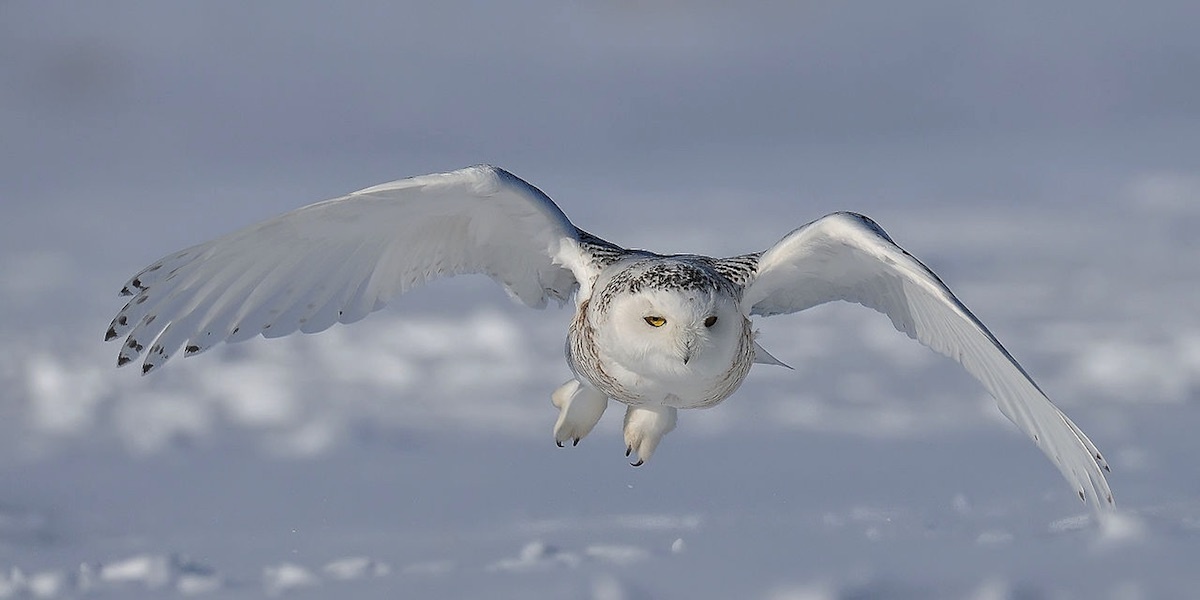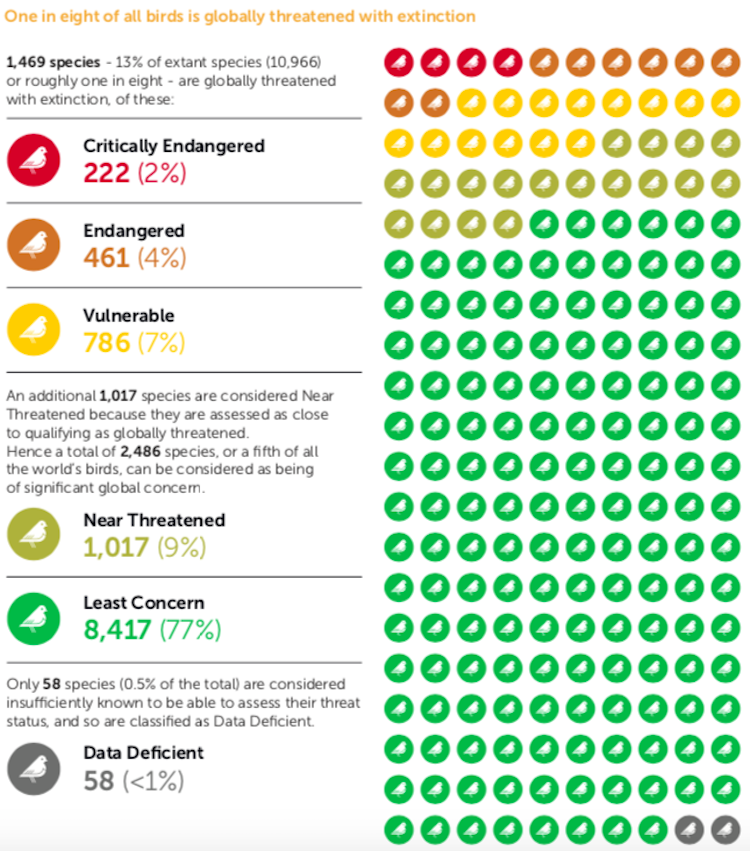

A major global assessment of global bird populations paints a grim outlook for our feathered friends.
A new report from BirdLife International finds that 40 percent of the world’s 11,000 bird species are in decline, with one in eight bird species now under some threat of extinction.
The State of the World’s Birds 2018 report, which took five years to compile, even shows that a number of well-known birds, including the snowy owl, Atlantic puffin and the European turtle-dove, are now at risk of extinction.
The researchers note that the decline in global bird populations has been driven by human activity. According to the report, the expansion and intensification of agriculture impacts 1,091 (74 percent) of globally threatened birds.
For instance—the use of neonicotinoids, a controversial class of neurotoxic insecticides connected to widespread bee population declines—has also been linked to white-crowned sparrows losing a quarter of their body mass and fat stores and impairing their migratory orientation, one study found.
Logging, overexploitation, urbanization, pollution, disturbance and invasive species were also identified as drivers of the world’s diminishing bird populations.
“The data are unequivocal. We are undergoing a steady and continuing deterioration in the status of the world’s birds,” Tris Allinson, BirdLife’s Senior Global Science Officer and editor-in-chief of the report, said in a statement. “The threats driving the avian extinction crisis are many and varied, but invariably of humanity’s making.”
Notably, the report also identified human-induced climate change as one of the most serious long-term threats to birds. The iconic, once-widespread snowy owl—recently up-listed to “Vulnerable” on the International Union of Conservation of Nature Red List—has experienced rapid declines likely due to changes in snowmelt and snow cover affecting the availability and distribution of prey.
Similarly, sea birds such as Atlantic puffin and the black-legged kittiwake—both listed as Vulnerable to extinction—have also seen a depletion of fish due to overfishing and climate change.
As a press release for the report noted, this isn’t just bad news for birds, it’s also a warning for the planet as a whole: “Because birds are so widespread, being found in nearly every type of ecosystem, and one of the most studied groups of animals, they are excellent indicators of the state of the environment.”
There is some good news in the report. Conservation interventions have saved at least 25 bird species threatened with extinction, the researchers found. The red-billed curassow, the pink pigeon of Mauritius and the black-faced spoonbill, which were each listed as Critically Endangered are now down-listed to Endangered.
The report outlines actions and changes to help birds, including restoration of habitats key to birds, eradicating and controlling invasive species and identifying the most vulnerable bird species in order to protect them.
“Although the report provides a sobering update on the state of birds and biodiversity, and of the challenges ahead, it also clearly demonstrates that solutions do exist and that significant, lasting success can be achieved” said Patricia Zurita, BirdLife’s CEO.
The State of the World’s Birds 2018 report

 233k
233k  41k
41k  Subscribe
Subscribe 
